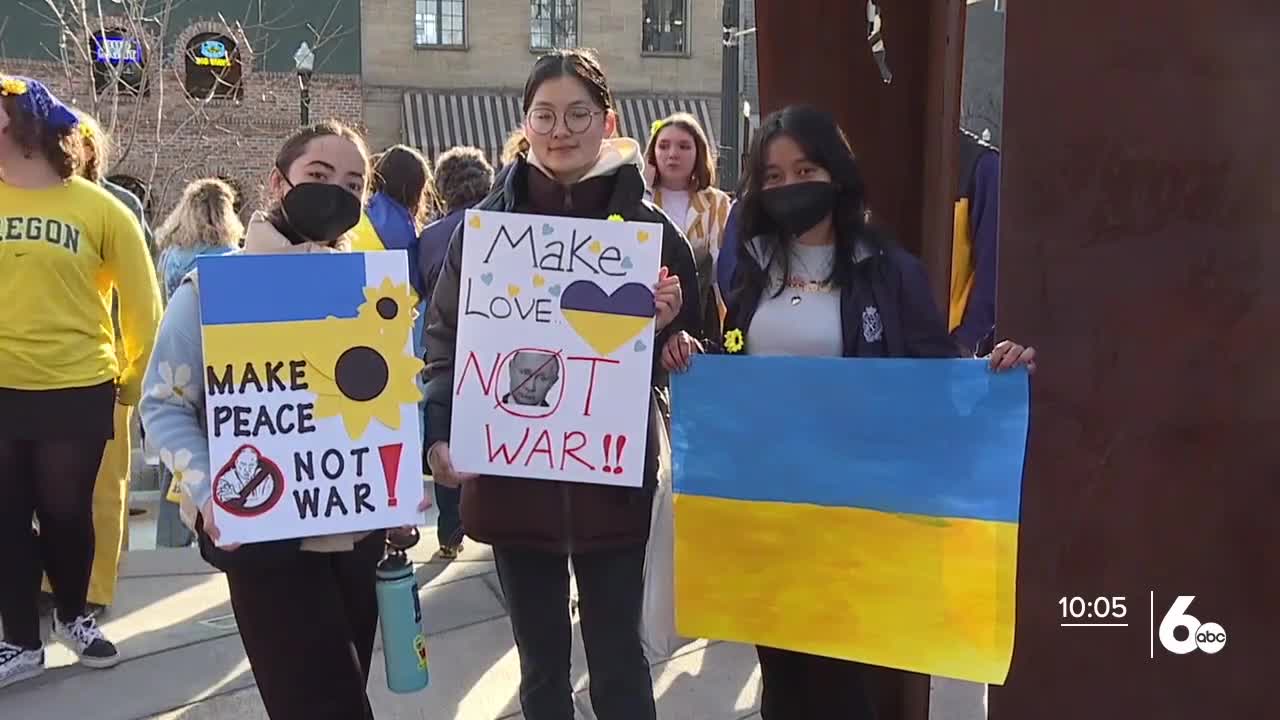Images provided by ABC.
In the 1960s, the Vietnam War started to grow increasingly unpopular, and protests erupted around the country. This discontent was not just among adults; students in high school and younger became involved. In Des Moines, the four children of the Tinker family ages 8 to 16 planned to wear armbands to school to protest the Vietnam War. Their school tried to prevent them, but the family was able to sue and formalize the rights of students at public schools to express their political beliefs. This should have been an example set for future generations, and yet this spirit has seemingly disappeared.
The Iraq and Afghanistan Wars both began with popular support but ended not with mass protests, but with quiet irritation. The military pullouts were stalled, as President after President kept a military presence without any clear objective. In the end, both countries were left devastated, with much infrastructure destroyed and people killed. Even America’s goal of destroying the Taliban failed, as they retook Afghanistan in about 9 days.
Americans have a moral duty to prevent this. Innocent lives and sovereign nations should not be destroyed by American imperialism or apathy. Most high school students may not be able to vote, but much like the Tinker children, they can make their opinions known. A loud response could inspire government or popular action; however, loud responses, particularly among teenagers, seem rare. In the most current form, this has manifested as a strange partial apathy toward the war in Ukraine. Most students seem worried, but many are more concerned by a hypothetical, very unlikely WWIII between the US and Russia, rather than currently suffering Ukrainian citizens.
Innocent lives and sovereign nations should not be destroyed by American imperialism or apathy.
There are several reasons why people may believe that apathy is permissible, or even desirable.
One is that following the news, or becoming emotionally invested in the struggles of faraway people is too emotionally taxing. It is true that emotional burnout will only lead to less productive action, but this can be used as an excuse. It is important to take care of individuals’ mental health, but the group as a whole can still have a general responsibility to show support.
Another is that Americans should just stay out of foreign events and that the wars in Iraq and Afghanistan only show that America should not be trying to “spread democracy.” America’s military involvement may be historically flawed, but America is a global superpower, and inaction, like any action, will have tremendous consequences. It is important to steer our country in the right direction.
Finally, many complain that people only care about foreign events in order to “virtue signal.” Guessing as to people’s intentions is irrelevant, as long as their methods of support are helpful.
There are multiple options to presently help Ukraine. Donating to humanitarian aid is the most simple and effective type of support, so consider giving to trusted organizations such as Unicef USA, or International Medical Corps. Volunteer for aid organizations such as Sunflowers for Peace. Spread information on how to help, both for other Americans and to popularize resources for refugees with websites such as supportukrainenow.org.
In general, try to remain informed as to what occurs in the world. Seek out international news organizations, while watching carefully for fake news (which can be especially prevalent during a conflict). When people are in need, join local protests calling for a response. If possible, donate or volunteer your time at humanitarian organizations. Spreading awareness and discussing these events with friends and peers can also be incredibly helpful. Most importantly, never become apathetic, and remember that global peace can only happen with global cooperation.
Olga Vysotsky is a senior at Washington High School. This is her first year at the paper. She was born and raised in Fremont, California. As a journalist, she is interested in covering politics, world affairs, technology, and particularly how they intersect. She is the treasurer of WHS Robotics Club, where she often teaches coding. Outside of tech, she loves to paint, collect coins, and sometimes dabble in calligraphy. Her future plans are to study aerospace engineering at university.

